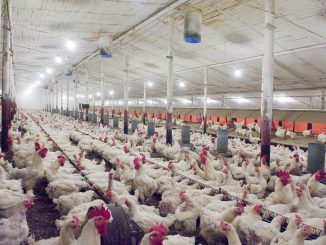Europeans are being urged to lead a global change in eating habits. In a new report – Our Nutrient World – issued by the United Nations Environment Programme (UNEP) on Monday 18th February, scientists urge rich countries to reduce meat consumption by half in order to avoid serious environmental damage.

The impacts of intensive farming practices for cheap meat production are now well documented: water and air pollution, ecosystem and biodiversity destruction, toxic algal blooms; to name but a few. According to the UNEP report, meat production accounts for 80% of the nitrogen and phosphorus used in farming. What is less understood is the positive impact that a reduction in (not an end to) meat consumption could have.
The term ‘demi-tarian’ (rather than vegetarian) was first coined by lead author of the study, Professor Mark Sutton. Rather than calling on people to simply stop eating meat, the term highlights the benefits of halving meat consumption and a return to the level of consumption seen just two generations ago. The demand for cheap meat is a very recent phenomenon.
Sutton believes the change in diet should start in Europe, suggesting such a behaviour change in the US may take a little longer. Elsewhere, those in poor countries should be allowed to increase their consumption of animal protein.
In the foreword of the report, Achim Steiner, United Nations Under-Secretary General and Executive Director United Nations Environment Programme warns:
“Without swift and collective action, the next generation will inherit a world where many millions may suffer from food insecurity caused by too few nutrients, where the nutrient pollution threats from too much will become more extreme, and where unsustainable use of nutrients will contribute even more to biodiversity loss and accelerating climate change.”
You can download the full report here




